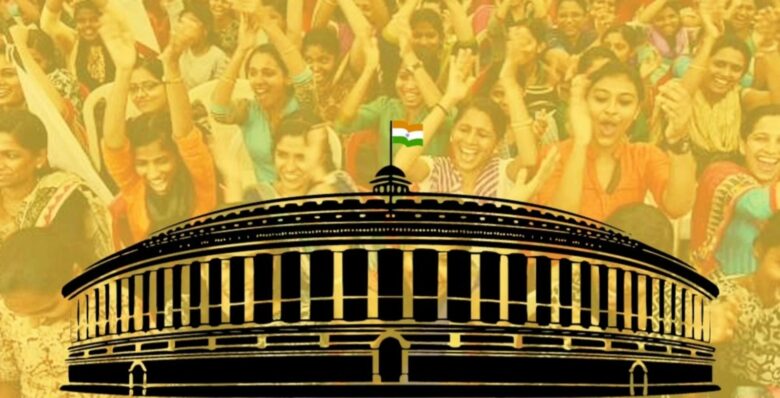Empowering Women politically and socially
In a world where women have increasingly shattered barriers and achieved remarkable feats in various domains, India stands at a crossroads. Despite witnessing notable milestones such as having a woman prime minister, chief ministers, and president long before other nations have, our country still grapples with a lack of substantial progress for its female populace in the realms of political and social empowerment.
The recent passage of the Women’s Reservation Bill by both Houses of Parliament represents a defining moment in India’s democratic journey, a pivotal step towards addressing this disparity and realizing a more inclusive and equitable society. The bill, officially known as, the Constitution’s (One Hundred and Twenty-Eighth Amendment) Bill, 2023, received unanimous approval from both the Lok Sabha and the Rajya Sabha. This legislation seeks to reserve 33% of seats in the Lok Sabha and State Assemblies for women, a testament to India’s commitment to fostering greater gender representation and harnessing the untapped potential of its women in leadership roles. This marks a significant milestone in India’s democratic journey.
Women in leadership
The significance of women in leadership cannot be overstated. Historically, women have demonstrated exceptional leadership qualities, showcasing resilience, determination, and adaptability in various fields. When given the opportunity, women have proven their competence and effectiveness in governing and decision-making. They bring diverse perspectives, nurturing tendencies, and problem-solving skills to the table, enriching the democratic process. Some of the dynamic speakers in the parliament over the years have been our women law makers and they have made a huge impact.
One of the compelling arguments for increased female representation in politics is the belief that the female gender tends to exhibit a higher degree of ethical conduct and empathetic leadership. Studies (McKinsey) have shown that women leaders often prioritize the well-being of their communities, focusing on issues related to education, healthcare, social welfare, and sustainable development. Their approach is characterized by collaboration, inclusivity, and a genuine concern for the betterment of society. Perhaps less corrupt practices too!
Challenges
It is essential to ensure that the Women’s Reservation Bill is not misused with token or ‘dummy’ women occupying political seats merely for appearances. It has often been highlighted in many parts of the country that seats reserved for women were actually controlled by the dominant male politicians of the area using women from their families as proxies. The intent of this legislation is to empower competent and capable women who can make meaningful contributions to the nation’s progress. Therefore, it is crucial to select candidates based on merit, ensuring that their leadership qualities, expertise, and dedication to public service are at the forefront of their candidacy. I am sure as time goes on, more women will assert themselves in the position and not let any domination from others in the family.
In Summary
The passage of the Women’s Reservation Bill is a remarkable achievement that highlights India’s dedication to fostering a more inclusive and equitable society. It emphasizes the need for competent and dedicated women in leadership roles, encouraging their active participation in shaping the nation’s future. Through affirmative action and a commitment to ethical governance, India aims to harness the tremendous potential of its female population, paving the way for a brighter and more gender-equal tomorrow.



